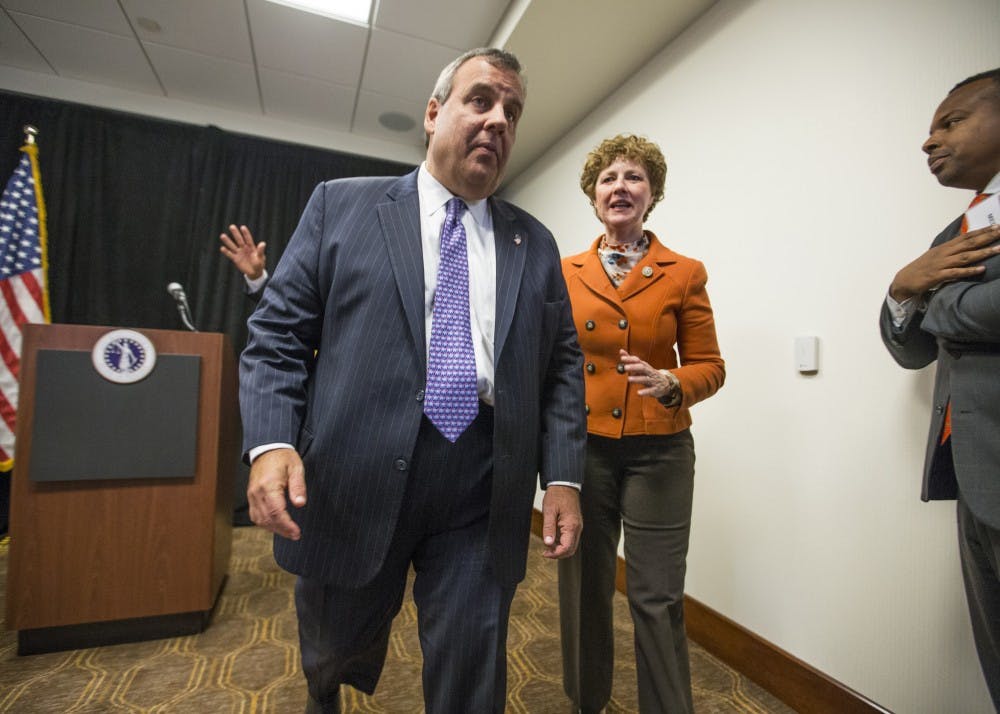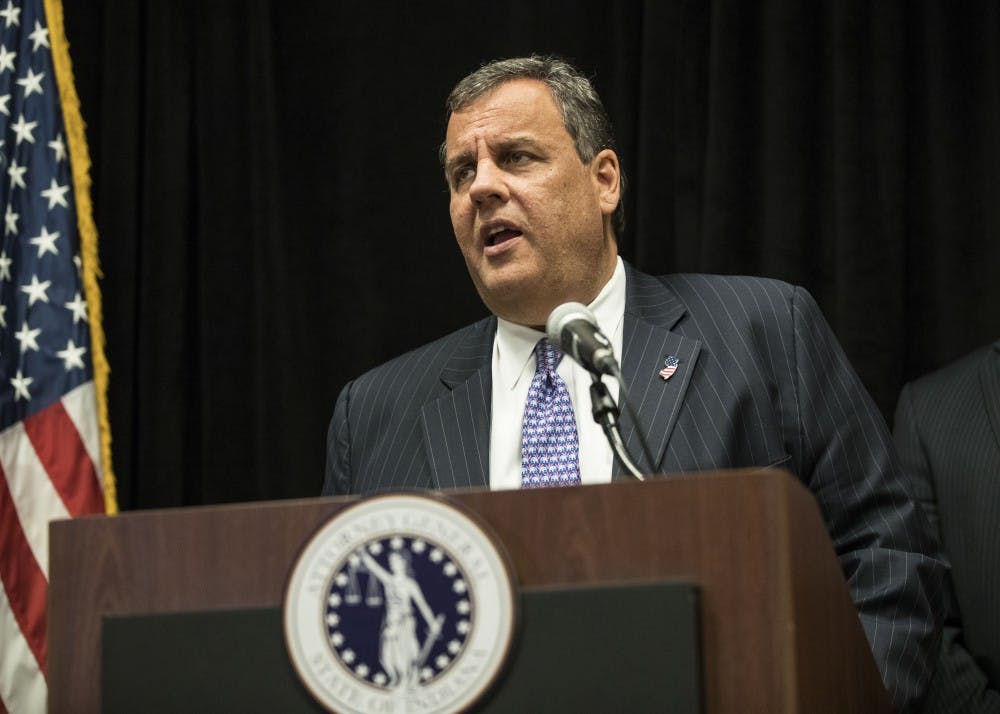175 Americans die of opioid overdose every day.
The crowd at the 8th Annual Prescription Drug Abuse Symposium fell silent at that number.
New Jersey Gov. Chris Christie gave the keynote address at the symposium in Indianapolis Monday afternoon. He stressed this national problem is a disease.
“This epidemic started not on our street corners, but in our doctor's offices, in our hospitals," Christie said. "We created this problem, we did. People are dying because we refuse to acknowledge the problem we created."
The United States consumes 81 percent of the world supply of opioids, according to a study done by the National Safety Council. But Christie said this number has risen to 85 percent.
Christie is the chairman of President Trump's commission on combating drug addiction and the opioid crisis, stemmed from an executive order signed by Trump last March.
Rep. Susan Brooks, R-5th District, introduced Christie on Monday and lauded his efforts as someone who understands the opioid crisis, as he has made opioid overdose deaths and opioid awareness a centerpiece of his time as governor of New Jersey.
Brooks introduced and passed legislation in 2016 to implement more focused strategies on fighting high rates of opioid and methamphetamine abuse and opioid-related deaths.
The Comprehensive Addiction and Recovery Act of 2016 aims at this goal of prevention and authorizes the Department of Justice to award grants to state, local and tribal governments to provide opioid abuse services, including developing treatments alternative to incarceration programs and collaborating between criminal justice and substance abuse agencies.
She said Christie has done much for his state and increased conversation on a national scale.
"I believe he has changed the conversation in this country, and we're going to win the battle in these families," Brooks said.
The visit coincides with Trump's recent announcement last week declaring the opioid addiction crisis a public health emergency.
As governor of a state which dubs itself "the medicine cabinet of the U.S." as he called it, Christie has had his hands full the last eight years.
With only 78 days left as governor, he said it is overtime for battling opioid addiction.
New Jersey has implemented several programs throughout Christie's time as governor, including putting recovery coaches in hospitals in all 21 counties in the state, according to New Jersey's Division of Mental Health and Addictions.

Every police officer, firefighter and EMT is now required to be armed with naloxone every minute they are on duty in the state, Christie said.
Christie told the audience at the symposium though there has been some considerable work done, his state is fighting a losing battle.
"We're losing," Christie said. "It doesn't mean that our efforts aren't worthwhile, but we are still not bending the curve."
He said part of the problem in New Jersey and nationally, was people are not willing to acknowledge addiction as a disease or end the stigma.
"We must acknowledge it is in any one us," Christie said. "You can judge no one."
He addressed the culture of prescription drugs as a cause for the increasing problem of opioid addictions beginning at doctor's offices, and New Jersey has worked to fix that.
New legislation in New Jersey limits opioid prescriptions to a 5-day supply, making them one of the strictest in the country.
Yet, according to a New Jersey study, 1,901 people died from opioid overdoses in New Jersey just last year.
More locally, 274, or 22.2 percent of the 1,236 drug overdose deaths in 2015 were opioid deaths, according to a special emphasis report from the Indiana State Department of Health.
The symposium itself encouraged education on opioid abuse and prevention, and Christie agreed.
"We need to start in first grade," Christie said. "It can't wait until high school, till middle school. It's too late by then."
In a press conference after the speech, Christie said the final report, to be released in two days, will give suggestions for Congress to then review.
He responded to criticisms of the President's failure to specify a number to spend on these efforts.
He said it is Congress, not the president, whose job it is to decide based on the recommendations
"It's time for Congress to step up and to put the money in there." Christie said.
Christie himself announced he plans to spend $200 million on opioid programs to help addicts and under-served populations including uninsured people on Medicaid, babies born with addiction and their mothers. The money comes out of the budgets of eight state departments.
Once the report is released in two days, the next step in Trump's public health emergency declaration will fall in Congress' hands. The commission expires in December.
CORRECTION: In a previous version of this story, IDS reported 175 Americans die of opioid overdose every two and a half weeks, and not every day. The IDS regrets this error.



